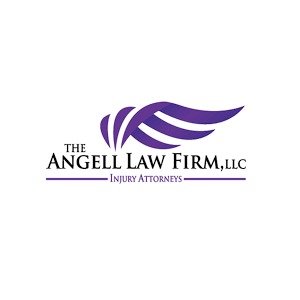Best Drugs & Medical Devices Lawyers in United States
Share your needs with us, get contacted by law firms.
Free. Takes 2 min.
Or refine your search by selecting a city:
List of the best lawyers in United States
About Drugs & Medical Devices Law in the United States
Drugs and medical devices are regulated by an intricate network of laws and regulations in the United States, primarily governed by federal agencies such as the Food and Drug Administration (FDA). The FDA's role is crucial in ensuring that these products are safe, effective, and properly labeled. The scope of Drugs & Medical Devices Law encompasses the development, manufacturing, distribution, and marketing of pharmaceuticals and medical devices. This area of law also covers regulatory compliance, product liability, patient safety, and intellectual property rights, presenting unique challenges and opportunities for industry stakeholders.
Why You May Need a Lawyer
Several common situations may necessitate the assistance of a lawyer specializing in Drugs & Medical Devices:
- Product Liability Claims: If a drug or device causes harm, affected patients may seek compensation. Legal assistance is vital for navigating complex litigation processes.
- Regulatory Compliance: Companies must navigate FDA regulations to bring products to market. Legal guidance assists in ensuring compliance and handling potential violations.
- Intellectual Property Disputes: Developing or marketing a new product may lead to patent infringement issues that require legal intervention.
- Contracts and Agreements: Manufacturing, distributing, and licensing agreements require diligent drafting and review by legal professionals.
- Clinical Trials and Research: Conducting clinical trials involves legal requirements concerning ethics, consent, and safety that necessitate legal oversight.
Local Laws Overview
Key aspects of local laws relevant to Drugs & Medical Devices in the United States include:
- Federal Food, Drug, and Cosmetic Act (FDCA): Primarily governs the oversight of food, drugs, and cosmetics, providing the framework for all FDA regulations.
- MedWatch: The FDA's safety information and adverse event reporting program play a key role in post-market surveillance of drugs and devices.
- State Regulations: States may have additional regulations that supplement federal laws, particularly concerning the distribution and sale of drugs and devices.
- Drug Enforcement Administration (DEA) Regulations: The DEA regulates the manufacturing and distribution of controlled substances, impacting pharmaceutical companies significantly.
- Patent Laws: Govern the protection of new drug and device inventions and are critical for pharmaceutical and biotech companies.
Frequently Asked Questions
1. What is the FDA’s role in regulating drugs and medical devices?
The FDA is responsible for ensuring that drugs and medical devices are safe, effective, and accurately labeled for consumer use. This includes the evaluation and approval of new drugs and devices, as well as monitoring their safety post-market.
2. What should I do if I’ve been harmed by a drug or medical device?
If you believe you’ve been harmed by a drug or device, it’s important to seek medical attention immediately. Document your experience, retain any related medical records, and consult with a lawyer specializing in product liability cases.
3. How can a lawyer help with FDA regulatory compliance?
A lawyer can assist by advising on compliance strategies, representing you in discussions with the FDA, and defending against potential enforcement actions.
4. What constitutes a defective medical device?
A device may be considered defective if it has design flaws, manufacturing defects, or inadequate instructions/warnings, leading to harm when used as intended.
5. Can I sue for side effects listed on a drug’s label?
It depends on whether the label provided adequate warnings, and if the drug was used as directed. A lawyer can assess the specifics of your case to determine potential legal remedies.
6. How are recalls of drugs or devices initiated?
Recalls can be voluntary actions by a company or mandated by the FDA if a product is found to be defective or dangerous. Consumers should follow recall announcements closely.
7. Are there different regulations for over-the-counter and prescription drugs?
Yes, over-the-counter (OTC) drugs must meet certain active ingredient and labeling requirements, while prescription drugs require FDA approval of safety and efficacy before marketing.
8. What is a class action lawsuit in the context of drugs and medical devices?
A class action is a legal action where one or several people sue on behalf of a larger group of individuals who have similar claims, often used in drug or device injury cases.
9. How can adverse drug reactions be reported?
Consumers and healthcare providers can report adverse reactions through the FDA’s MedWatch program, assisting in the ongoing monitoring of drug safety.
10. What are the penalties for violating drug and device regulations?
Penalties can include fines, product seizure, injunctions, and, in severe cases, criminal charges. Companies often face civil liability as well.
Additional Resources
Here are some resources that can be helpful for those seeking legal advice related to Drugs & Medical Devices:
- FDA Website: For regulations, guidance, and compliance information.
- MedWatch Program: To report adverse drug reactions and access safety alerts.
- Drug Enforcement Administration (DEA): For information on controlled substance regulations.
- American Bar Association (ABA): Offers resources on finding qualified legal professionals in this field.
- Consumer Product Safety Commission (CPSC): Provides information on product recalls and consumer safety.
Next Steps
If you need legal assistance in the field of Drugs & Medical Devices, consider the following steps:
- Identify Your Needs: Determine the specific issue you are facing to find the right legal expertise.
- Consult with a Lawyer: Seek a consultation with a legal professional specializing in drug and medical device law to discuss your case.
- Gather Documentation: Compile all relevant documents and evidence related to your case for review by your lawyer.
- Explore Legal Options: Work with your lawyer to understand your legal options and the best course of action.
- Stay Informed: Keep updated on developments in drug and device regulations that might affect your situation.
Lawzana helps you find the best lawyers and law firms in United States through a curated and pre-screened list of qualified legal professionals. Our platform offers rankings and detailed profiles of attorneys and law firms, allowing you to compare based on practice areas, including Drugs & Medical Devices, experience, and client feedback.
Each profile includes a description of the firm's areas of practice, client reviews, team members and partners, year of establishment, spoken languages, office locations, contact information, social media presence, and any published articles or resources. Most firms on our platform speak English and are experienced in both local and international legal matters.
Get a quote from top-rated law firms in United States — quickly, securely, and without unnecessary hassle.
Disclaimer:
The information provided on this page is for general informational purposes only and does not constitute legal advice. While we strive to ensure the accuracy and relevance of the content, legal information may change over time, and interpretations of the law can vary. You should always consult with a qualified legal professional for advice specific to your situation.
We disclaim all liability for actions taken or not taken based on the content of this page. If you believe any information is incorrect or outdated, please contact us, and we will review and update it where appropriate.
Browse drugs & medical devices law firms by state in United States
Refine your search by selecting a state.













